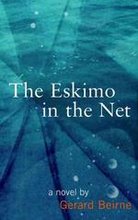A Lot of Thunder and Lightning - Stephen Dobyns and Obscure Poetry

Dead Beat almost missed Stephen Dobyn's call. The line wasn't good. He thought it was a telemarketer.
"Take me off your list!" Dead Beat demanded.
"What's up D.B.? What have I done to offend you."
It was only then Dead Beat recognised the voice.
"Sorry Steve," he apologised. "It was the line. I couldn't hear you clearly."
"What do you mean, you couldn't hear Dobyns clearly. Dobyns is the clearest sounding poet in the universe."
"Don't get me wrong...."
"You know what I don't like," he interrupted angrily, "obscure poetry. One kind exists because the poet has an idea of his poem in his mind, and then he puts it on the page, and it's obscure because it's referencing material the poet knows that's not accessible to the reader.
If I'm writing a poem, I want it to be finished, I want it to work, and I want it to be liked. There are arguments and sound structures within the poem which I am attempting to pull off in some way, and when I do them, I can say to myself, This works. This is good. This is finished. Many times when I say that, however, I'm simply wrong. I've confused the poem that exists in my imagination with the poem that exists presently on the page.
And then there's the kind of obscurity that's created by a writer who wants to set himself off as intelligent, so his poetry has a lot of thunder and lightning, and you expect some substance behind it, but it's not there. It's just thunder and lightning.
Many of us, maybe all of us, are afraid to be thought less intelligent than we are or wish we were, and we can be hesitant to put down our ideas, frankly, for fear that someone will say So what? or That's not very smart. But you can't allow yourself to be hesitant in a poem.
Are you listening to me Dead Beat?"
"I'm all ears."
"Good. Now I gotta go. But I may call you back. Are you hearing me clearly?"










No comments:
Post a Comment